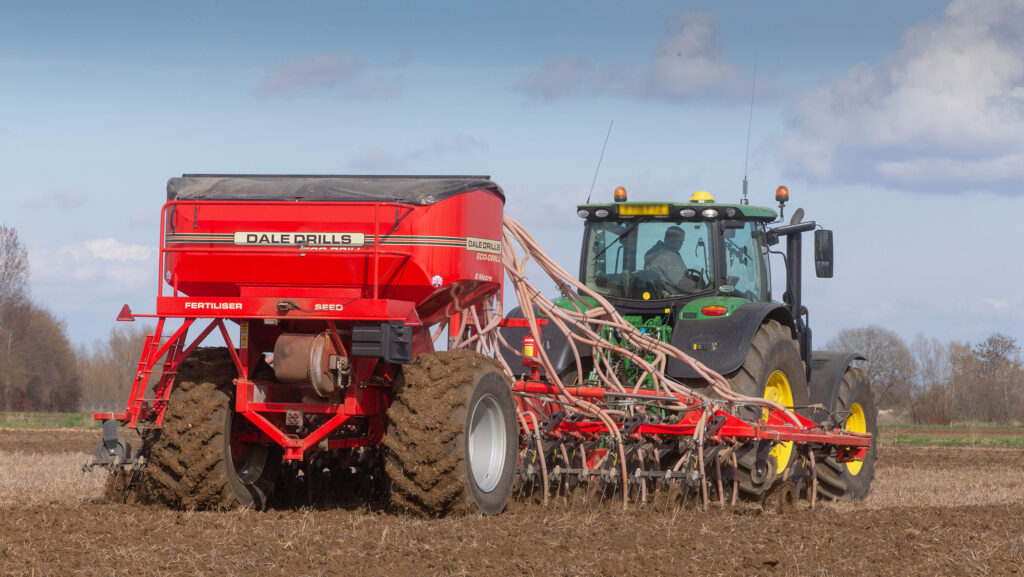Opinion: Could regenerative agriculture soon require a certificate?
 © Tim Scrivener
© Tim Scrivener Kevin Kennedy is a partner at independent UK law firm Burges Salmon, based in its Bristol office. Here he explains why it is time to tighten up the definition of regenerative agriculture.
Regenerative agriculture is seen as a broad church. It encompasses a whole number of different practices which, on the whole, have at their heart the enhancement of soil fertility.
That includes a focus on maintaining soil cover throughout the year, keeping living roots in the ground, a significant diminution in chemical intervention, and the integration of livestock into arable systems.
See also: Opinion: Society and government need farmers more than ever
Even trying to describe it, however, is open to question. For many, it is more of an approach or attitude to farming rather than a particular prescribed process that must be followed.
About the author

Kevin Kennedy is a partner at independent UK law firm Burges Salmon, based in its Bristol office. Here he explains why it is time to tighten up the definition of regenerative agriculture.
Kevin Kennedy is a partner at independent UK law firm Burges Salmon, based in its Bristol office. Here he explains why it is time to tighten up the definition of regenerative agriculture.
It is certainly not a certified and regulated standard that can be compared with organic production.
But this year seems likely to test that. Just hearing regenerative tagged to the front of agriculture so often provokes a fear that this may just be a bandwagon.
As regenerative agriculture develops, however, the issue of its credibility as a process, and what barriers there are to producers calling themselves regenerative, will come to the fore.
‘Hype or hope?’
This was made apparent by one of the partner sessions at the Oxford Farming Conference in January, hosted by the National Institute for Agricultural Botany, called “Regenerative agriculture – hype or hope?”.
Niab’s own experience was presented by its head of farming systems, Elizabeth Stockdale, who emphasised the broad-church approach to regenerative agriculture.
But most of the session involved a presentation from Antony Yousefian of the First Thirty Ventures, an investor focused on early-stage agri-tech companies with a regenerative focus.
He spoke of various projects his organisation was involved in and shared slides showing research on regenerative agriculture.
This is the sort of material that can be expected to be put to venture capitalists and other investors, all of whom are circling this area, seeing the potential for systematic change.
We were presented with apparent evidence of the health benefits of regenerative agriculture, including a comparison between omega 3 and omega 6 levels in conventional and regeneratively produced grain. The obvious conclusion was that the latter is better for you.
But the moment that is said, you need to be able to clarify what regenerative agriculture actually is, and what it is not.
You cannot have a range of potential practices, some of which may be easy to integrate and some of which may involve wholesale re-engineering of a farm, and say that the claimed benefits apply to them equally.
There has to be more rigour around what regenerative agriculture actually means if the benefits of its output are to be established and promoted, perhaps for a premium price.
Recognition
The assumption is that regenerative agriculture will grow in recognition.
An AHDB report in July 2021 evidenced a low level of consumer awareness.
But while only 14% of British consumers had heard of regenerative agriculture at the time, the AHDB predicted awareness would grow “as consumer concern for the environment increases, and brands and retailers begin to use the term more frequently”.
Anecdotally, that is happening already
So, if regenerative agriculture is to have credibility as a concept, a collective decision will need to be made as to whether it stays as it is – a producer-focused issue – or starts to become something that purports to offer qualitative benefits in its product.
If the latter option is the destination, then some form of verification or certification is bound to be required.
